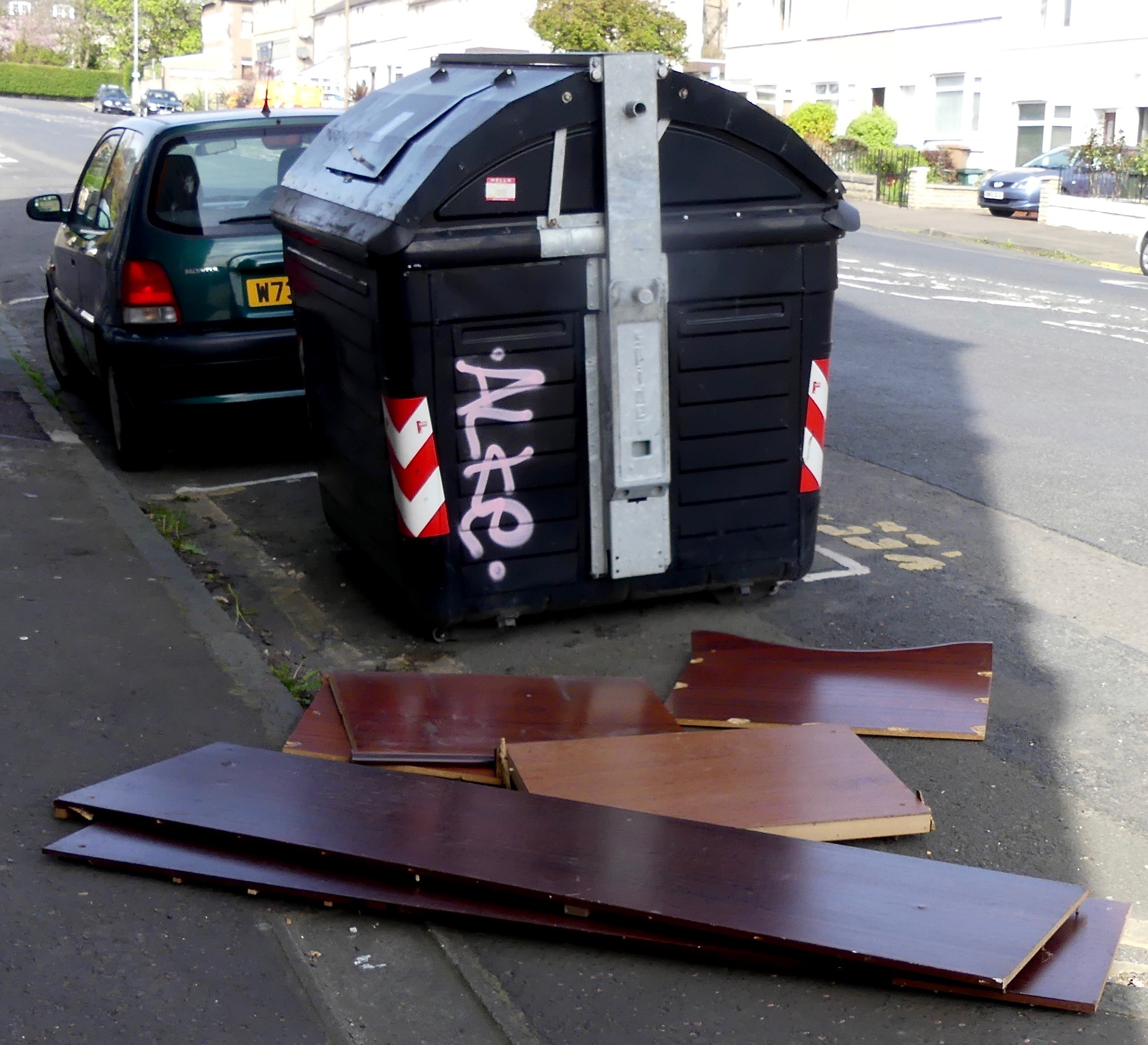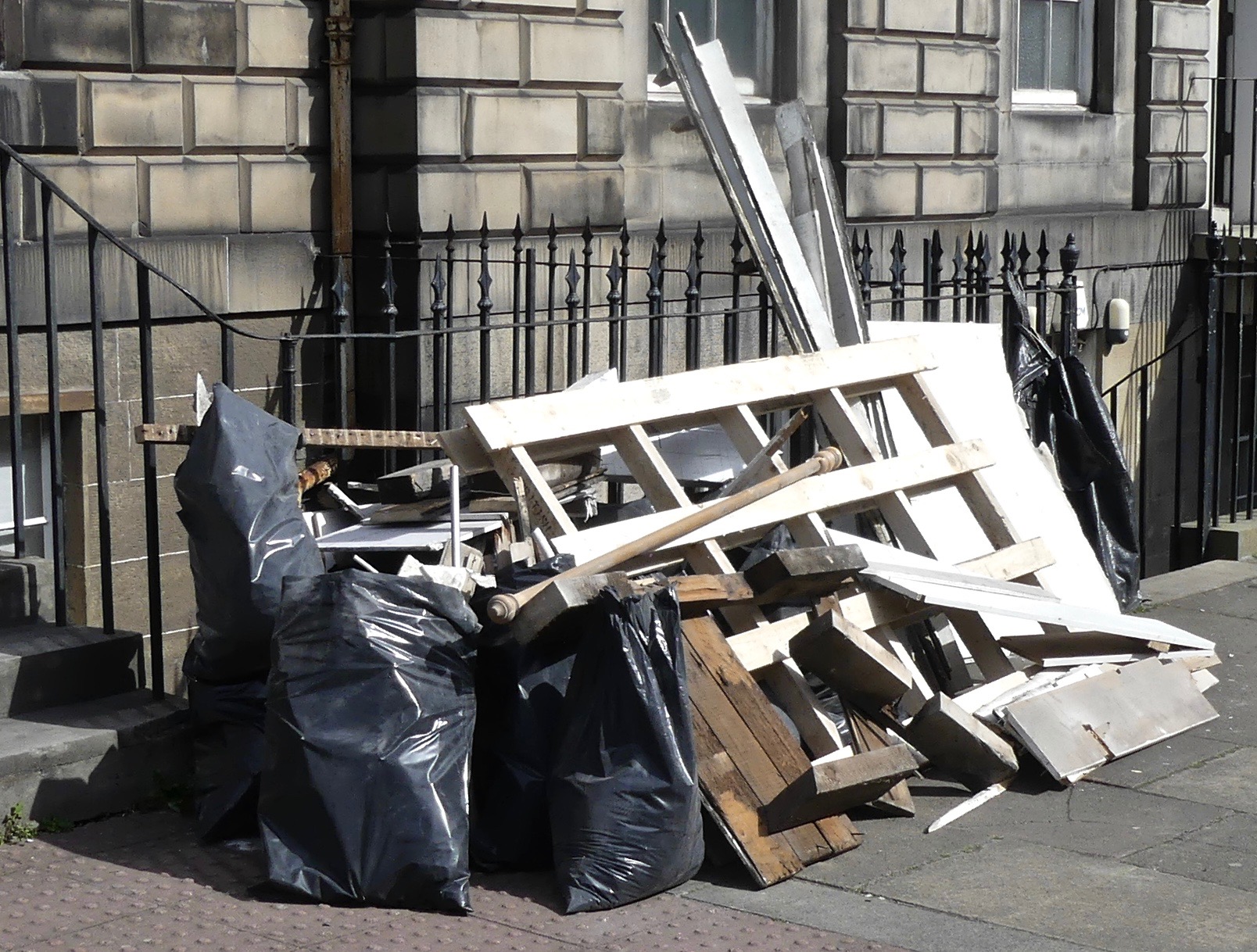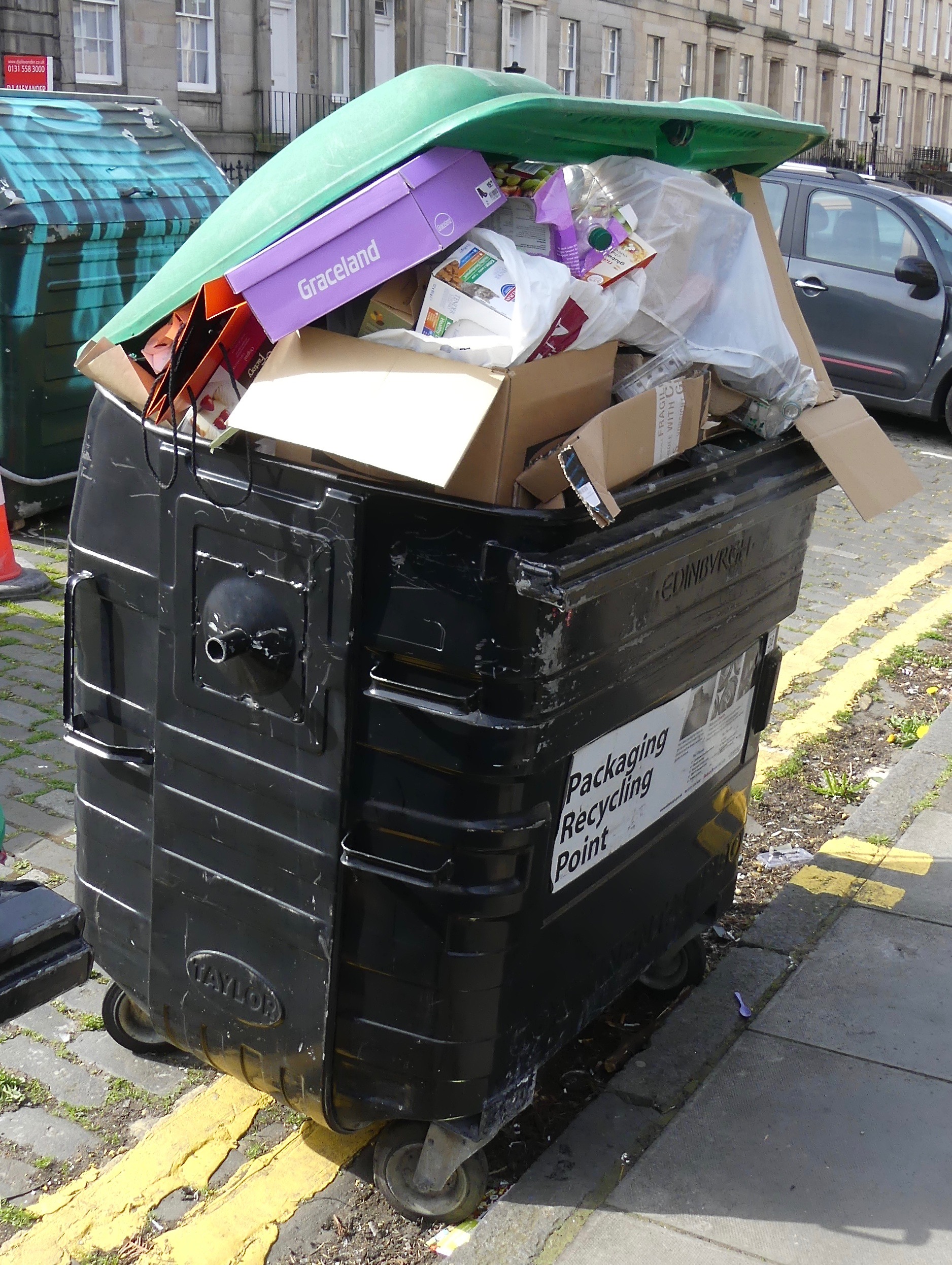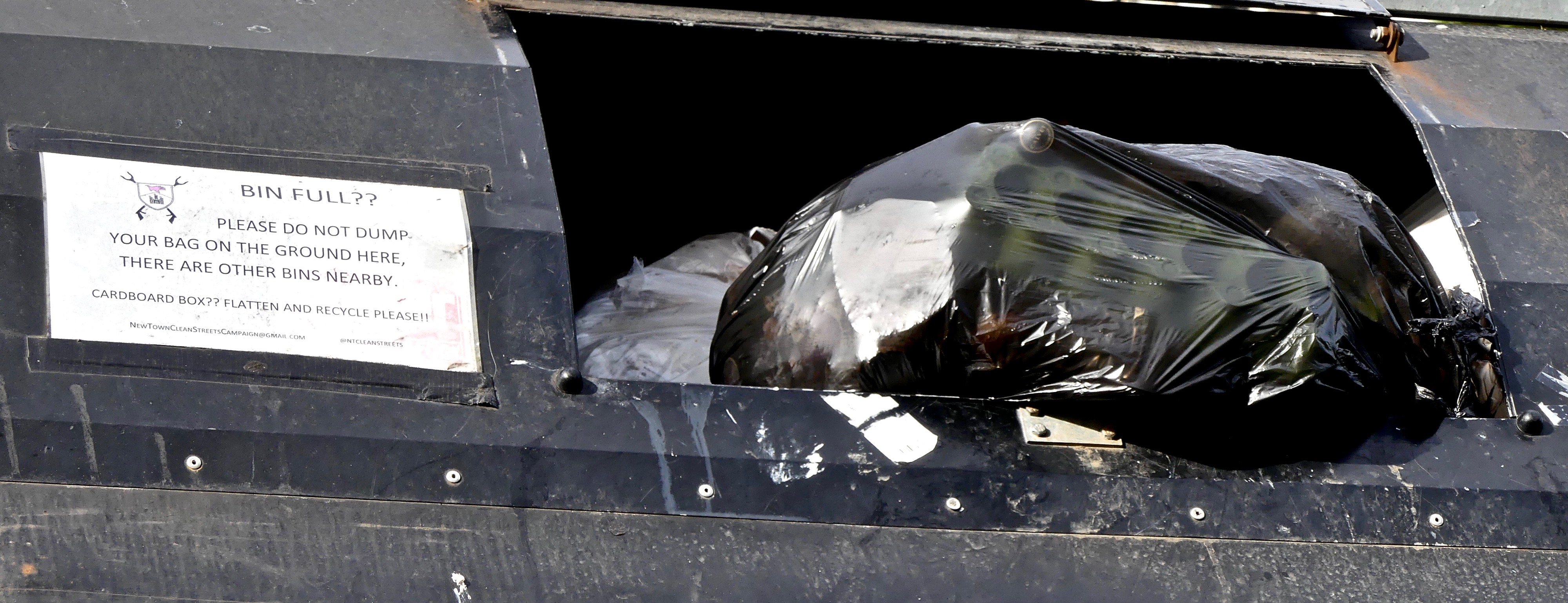
Overflowing city-centre bins, missed collections, unreliable recycling experiments and a noticeable increase in fly-tipping are common and vexatious features of Edinburgh life.
Politicians – particularly in the run-up to an election – suspect that there are votes to be had in promising to tackle these issues. And so they should. Shouldn't they? Well … up to a point.
How and when to intervene
The New Town Clean Streets campaign welcomes the Council’s existing 65-point improvement plan to tackle problems with waste and cleansing services (Item 7.1 here).
They reckon that, ‘At least it shows the City understands the magnitude of the task facing them, even if most of the steps remain to be implemented’.
But NTCS are less sure about politicians carving personal roles through waste:
One of the most irritating phenomena, familiar to those who use Twitter as a way of reporting waste and street cleaning issues to the Council, is how some councillors claim to 'take ownership' of this or that pile of rat-nibbled refuse and demand that it be cleared instantly.

Even more irritating is the fact that it frequently IS cleared forthwith, while numerous tweeted complaints of mere residents about the same pile, often stretching back over several days or even weeks, have gone completely unheeded.
We shouldn’t have to be special Twitter friends with a councillor in order to have our bins emptied. In fact, councillors asking for special favours from officials just adds to the problem.
A proper attempt to tackle the issue should surely start with finding out why residents’ complaints so often seem to be ignored. We need improved systems for reporting and tracking resolution of ALL complaints, rather than allowing some favoured individuals to jump the queue.
NTCS aren’t saying that councillors have no individual roles to play – far from it. But they reckon the councillors who help the most do so by limiting their interventions to making current processes work smoothly. For example, by ensuring a complaint reaches the right person, by being persistent, by taking some of the heat out of the complaint when a resident is angry and frustrated.

Sifting promises
So, as we clamber through fag butts and stained sofas to the big day on 4 May, how can voters assess election candidates when they start to talk rubbish?
Spurtle has been gathering opinions, and now offers a short list of non-party-political awkward questions.

- Have new initiatives been checked as practical and affordable by Council officials who understand the process?
- Are election pledges genuinely offering something new, or taking credit for measures officials have already planned to introduce?
- Are candidates making promises for their own wards, or for the city as a whole?
- Are specific policy pledges clear enough for their progress to be audited at a given point in the future? If not, why not?
- How will waste policy improve the mechanical reliability of bin lorries?
- If money is being promised to fix a problem, is this a new/additional sum and exactly how much will it achieve?
- If it’s ‘old’ money being redirected to improve waste services, where has it come from? What part of the Council budget is being cut instead? Is this a fair and desirable trade-off?
Spurtle doesn’t have a waste/cleansing manifesto of its own. Nor do we have simple answers to awkward questions like the ones above. But we're very wary about the claims of those candidates who do.
Got a view? Tell us at spurtle@hotmail.co.uk or @theSpurtle or Facebook
